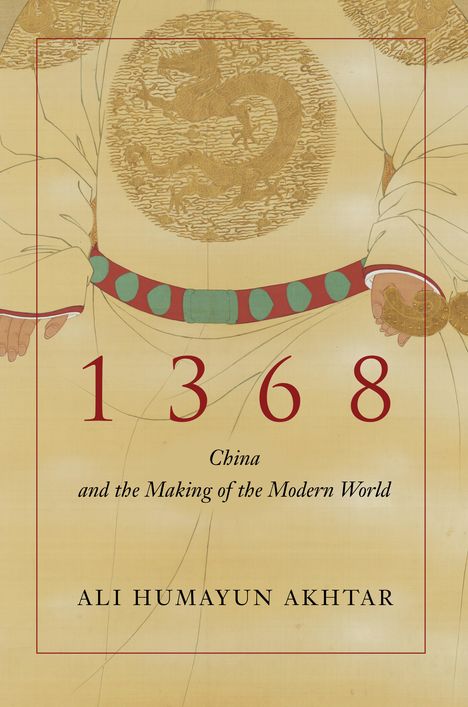Ali Humayun Akhtar: 1368
1368
Buch
- China and the Making of the Modern World
- Stanford University Press, 02/2024
- Einband: Kartoniert / Broschiert
- Sprache: Englisch
- ISBN-13: 9781503638136
- Artikelnummer: 11465351
- Umfang: 256 Seiten
- Gewicht: 372 g
- Maße: 229 x 152 mm
- Stärke: 14 mm
- Erscheinungstermin: 13.2.2024
Achtung: Artikel ist nicht in deutscher Sprache!
Weitere Ausgaben von 1368
Klappentext
"With the goal of understanding China's future in a changing international landscape, this book offers a new picture of China's rise since the Age of Exploration and its historical impact on the modern world. The establishment of the Great Ming dynasty in 1368 was a monumental event in world history. A century before Columbus, Beijing sent a series of diplomatic missions across the South China Sea and Indian Ocean that paved the way for China's first modern global era. In 1368, Ali Humayun Akhtar maps China's ascendance from the embassies of Admiral Zheng He to the arrival of European mariners and the shock of the Opium Wars. In Akhtar's new picture of world history, China's current rise evokes an earlier epoch, one that sheds light on where Beijing is heading today. Spectacular accounts in Persian and Ottoman Turkish describe palaces of silk and jade in Beijing's Forbidden City. Malay legends recount stories of Chinese princesses in Melaka with gifts of porcelain and gold. During Europe's Age of Exploration, Iberian mariners charted new passages to China that the Dutch and British East India Companies transformed into lucrative tea routes. Among the ships' passengers were Italian Jesuits, whose linguistic skills facilitated book projects with local mapmakers and botanists published in Amsterdam. But there was a shift during the British Industrial Revolution, one that pointed to Europe's high-tech future. Across the British Empire, the rise of steam engines and factories allowed the export of the very commodities once imported from China. By the end of the Opium Wars and the arrival of Commodore Perry in Japan, Chinese and Japanese reformers called for their own industrial revolutions, one that would accelerate in the twentieth century. What has the world learned from China since the Ming, and how did China reemerge in the 1970s as a manufacturing superpower? Akhtar's book provides much-needed context for understanding China's rise today and the future of its connections with the West and a resurgent Asia"--
Ali Humayun Akhtar
1368
EUR 19,43*

